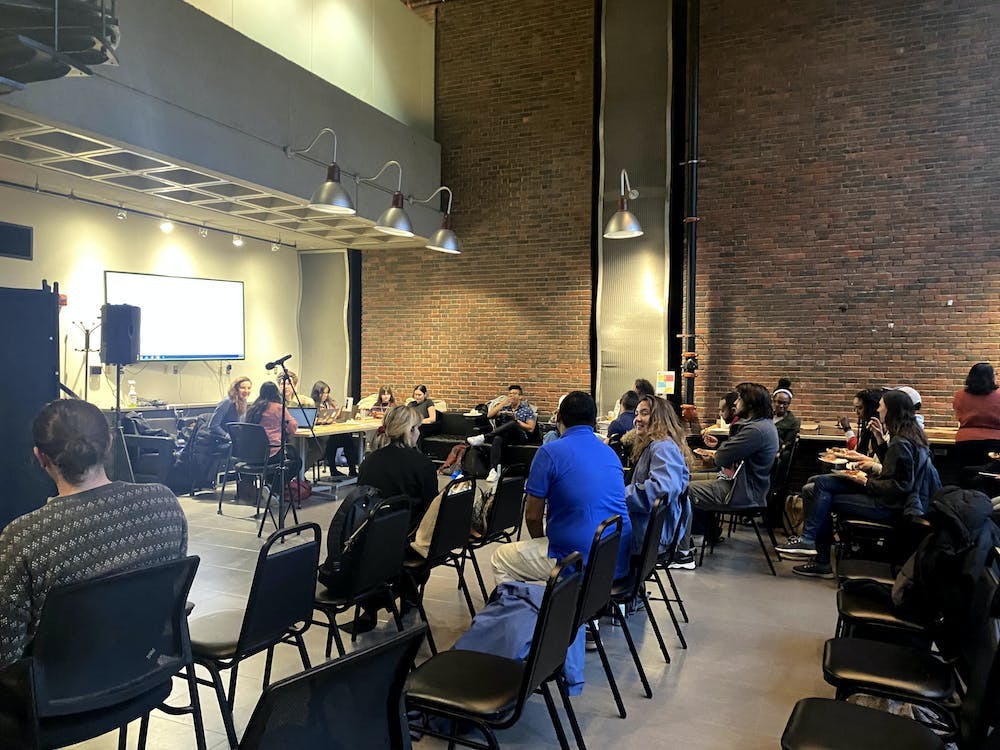The Graduate Student Council approved a budget of $124,000 for the fall 2023 semester — a $10,000 increase from last semester’s budget — at its first meeting of the semester Wednesday night.
GSC Treasurer Sofia Verba GS attributed the uptick to an increase in graduate enrollment at the University and a $5 increase in the GSC membership fee. This fall, 3,100 graduate students are enrolled at Brown, Verba said, as compared to 2,920 last October, according to the Office of Institutional Research.
The majority of funds are allocated for graduate student community socials, conference funding and student membership fees to the Graduate Center Bar.
Other changes to the budget included a restructured student life fund, which was split into three parts: events, tech support and equipment and food pantry funds.
"We are proud that we can supply a food pantry for food insecurity,” Verba said, adding that GSC plans to allocate $1,500 to stock the pantry this year.
In addition to funding the food pantry last semester, GSC allocated $15,000 of its savings to target food insecurity through a partnership with Brown Market Shares, a student-run organization that works with local farms to distribute food to the University community at a reduced cost, GSC President Farha Mithila GS said.
According to Mithila, the council does not plan to continue the partnership this semester due budget limitations, but is looking to find additional solutions to food insecurity while assessing graduate student community needs.
Dean of the Graduate School Thomas Lewis ’90 attended the meeting to give introductory remarks and share his view of the Grad School’s current objectives.
According to Lewis, the Grad School has three primary functions: to support individual graduate programs, to create a co-curricular space around and between individual programs and to provide direct support to students themselves.
In the coming semester, the Grad School will focus primarily on advancing diversity, equity and inclusion efforts, implementing bidirectional feedback between students and faculty, revising departmental PhD advising handbooks and creating “PhD 360,” a comprehensive overview of all the resources available to PhD students, Lewis said.
Graduate Labor Organization President Sherena Razek GS and Political Director Michael Ziegler GS also spoke at the meeting, encouraging GSC members to attend the Sept. 20 GLO bargaining session ahead of the union’s second contract with the University.
According to Razek, GLO’s bargaining priorities include adjusting stipends and wages to reflect increased costs of living, along with improving graduate student health care, working hours and protections against discrimination and harassment and making Brown a sanctuary campus for undocumented students.
Mithila also mentioned plans to advocate for more graduate-student-specific spaces on campus, noting that, as of now, the Graduate Student Lounge is the only designated space for graduate students. She added that past efforts have stalled as they haven’t yet found an adequate space.
Chair of International Advocacy Ramisa Fariha GS raised concerns about the University’s plans to split the International Student Advisory Board into three separate boards for undergraduate, master’s and PhD students.
In the past, the ISAB has comprised multiple undergraduate and graduate representatives, as well as representatives from the Global Brown Center for International Students and the Office of Global Engagement.
In the upcoming months, GSC plans to hold a series of lunchtime workshops entitled “Know Your Power” in collaboration with the Department of Public Safety, BWell and the LGBTQ center. According to Fariha, these workshops will aim to help graduate students take advantage of resources and infrastructure already in place at the University.

Anisha Kumar is a section editor covering University Hall. She is a junior from Menlo Park, California concentrating in English and Political Science who loves speed-crosswording and rewatching sitcoms.





